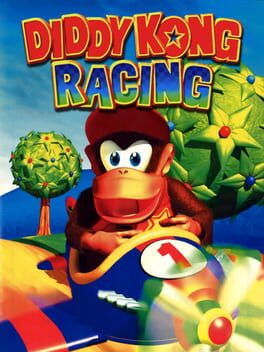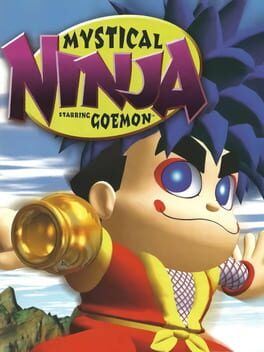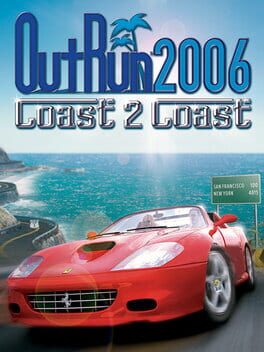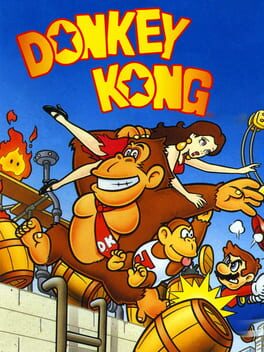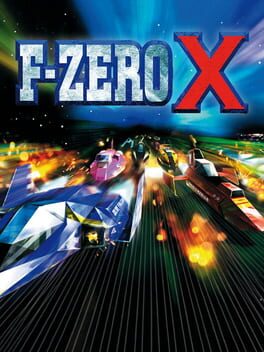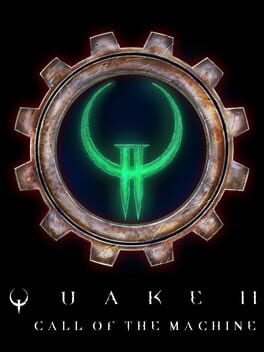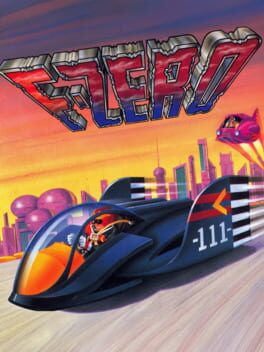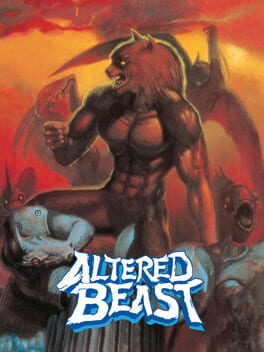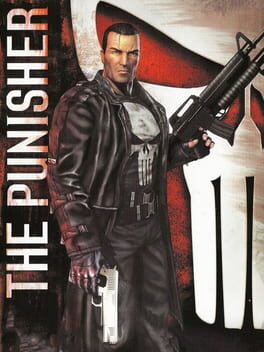andihero
2017
The fact that this game is put on a pedestal as not only one of gaming's flagship titles but was nominated for multiple game of the year awards and has a sequel on its way that is one of the most anticipated releases of 2022 is something that I feel sums up everything about modern gaming.
Let's start with the positive - Horizon is a stunning looking videogame. I've gone back to my old save file - one I bailed on back in 2017 - on PS5 and I can't quite believe this is a five year old game and not a native PS5 title. The smooth 60fps upgrade is likely doing a bit of heavy lifting but even in the many screenshots I have taken from my playthrough, it is an undeniably good looking game, right up there at the very top of the pile.
That's it. That's the positive.
Christ, where do we start with the negatives? What Horizon: Zero Dawn offers is little more than a visual treat. As an open world game, it is doing nothing more than the stuff we got bored of on the 360/PS3. As an action game, it feels awkward with all of the attacks feeling far too over-animated and taking far too long to give you a snappy sense of control. The stealth elements are basic, barebones, nothing special but certainly not bad. Most of the sidequests are fetch or kill quests. The characters are all generic tropes, from the father figure who dies to give you a motive to the villain you remember from your childhood - there's not a single original character arc in the entire thing. The overall lore of the world of Horizon comes dangerously close to being actually interesting but then spaffs that up the wall by only revealing itself to you via an insulting amount of audio logs or, in two hilariously bad sections, unskippable exposition dumps.
Open world games are extremely popular and everything about this feels so fucking cynical. Skill trees lock away basic abilities because heaven forbid you have too much freedom from the word go. Yellow fucking objects show where you can climb and you better not get any ideas about climbing on anything other than these obvious climbing markers! From the lead character, sub-Netflix "box set" show storyline and game mechanics that are so well-worn that you basically know exactly how this game plays and feels before you've even started it - and this is all entirely by design. You're supposed to know exactly what you're getting in to and that is one of the main reasons behind its success. It's a game for the lowest common denominator. It's a game that doesn't want any friction whatsoever. It's the gaming equivalent of wall painted in magnolia white with a Live, Laugh, Love framed poster on it.
It is the most basic of basic bitch stuff.
I think it speaks volumes that this - the absolute fucking DEATH of the old style of open world game that Ubisoft and their ilk have been milking since the first Assassin's Creed and has been begging for death for over a decade - came out only a few weeks before Breath of the Wild showed up and instantly made anything that treads the same boards as Horizon look like a relic almost immediately.
Looks great though so you know 10/10 GOTY please tune in to the Game Awards!!!!!!
Let's start with the positive - Horizon is a stunning looking videogame. I've gone back to my old save file - one I bailed on back in 2017 - on PS5 and I can't quite believe this is a five year old game and not a native PS5 title. The smooth 60fps upgrade is likely doing a bit of heavy lifting but even in the many screenshots I have taken from my playthrough, it is an undeniably good looking game, right up there at the very top of the pile.
That's it. That's the positive.
Christ, where do we start with the negatives? What Horizon: Zero Dawn offers is little more than a visual treat. As an open world game, it is doing nothing more than the stuff we got bored of on the 360/PS3. As an action game, it feels awkward with all of the attacks feeling far too over-animated and taking far too long to give you a snappy sense of control. The stealth elements are basic, barebones, nothing special but certainly not bad. Most of the sidequests are fetch or kill quests. The characters are all generic tropes, from the father figure who dies to give you a motive to the villain you remember from your childhood - there's not a single original character arc in the entire thing. The overall lore of the world of Horizon comes dangerously close to being actually interesting but then spaffs that up the wall by only revealing itself to you via an insulting amount of audio logs or, in two hilariously bad sections, unskippable exposition dumps.
Open world games are extremely popular and everything about this feels so fucking cynical. Skill trees lock away basic abilities because heaven forbid you have too much freedom from the word go. Yellow fucking objects show where you can climb and you better not get any ideas about climbing on anything other than these obvious climbing markers! From the lead character, sub-Netflix "box set" show storyline and game mechanics that are so well-worn that you basically know exactly how this game plays and feels before you've even started it - and this is all entirely by design. You're supposed to know exactly what you're getting in to and that is one of the main reasons behind its success. It's a game for the lowest common denominator. It's a game that doesn't want any friction whatsoever. It's the gaming equivalent of wall painted in magnolia white with a Live, Laugh, Love framed poster on it.
It is the most basic of basic bitch stuff.
I think it speaks volumes that this - the absolute fucking DEATH of the old style of open world game that Ubisoft and their ilk have been milking since the first Assassin's Creed and has been begging for death for over a decade - came out only a few weeks before Breath of the Wild showed up and instantly made anything that treads the same boards as Horizon look like a relic almost immediately.
Looks great though so you know 10/10 GOTY please tune in to the Game Awards!!!!!!
1997
2001
There's been roughly one billion videos made and articles written analysing Silent Hill 2's themes, doing deep dives into areas of the game and all sorts of extremely detailed explanations of individual moments throughout it. There's a reason for this, because Silent Hill 2 might be the most thematically solid video game ever made.
Every single aspect of it is all laser focused on the same goal. From the writing, visuals, enemy design, even extremely specific parts of the world design are all an important part of telling this bleak, brutal tale. A mature game, not just in terms of subject matter, but also in regards to the way it is handled and the approach you need to take to truly get the most out of it.
Unfortunately, Silent Hill 2 is starting to show its age. The best place to play it remains on the original hardware, although the modding scene around the PC version is close to getting the game looking its best on modern hardware. Don't even go near the 'HD' version, it is an unholy mess.
A truly standout game in the survival horror genre and one of the best examples of how a video game can tell a story in a way that other types of media simply cannot.
Every single aspect of it is all laser focused on the same goal. From the writing, visuals, enemy design, even extremely specific parts of the world design are all an important part of telling this bleak, brutal tale. A mature game, not just in terms of subject matter, but also in regards to the way it is handled and the approach you need to take to truly get the most out of it.
Unfortunately, Silent Hill 2 is starting to show its age. The best place to play it remains on the original hardware, although the modding scene around the PC version is close to getting the game looking its best on modern hardware. Don't even go near the 'HD' version, it is an unholy mess.
A truly standout game in the survival horror genre and one of the best examples of how a video game can tell a story in a way that other types of media simply cannot.
The best racing games, for me, have a vibe. This isn't an arcade vs sim racer thing, it is a VIBE thing. For instance, Forza Motorsport has no vibe, while Gran Turismo has a big vibe. Criterion's Need For Speed: Most Wanted is a total vibe-killer but the original 3DO Need For Speed? A total vibe. Crash Team Racing? No vibe. Konami Wai Wai Racers? Vibes for days. Do you see what I mean?
If you know, you know.
OutRun 2 is one of the most vibe-y racing games ever made. Is it even a racing game? What are you even racing against? Time? Just jump in a Ferrari, stick on Risky Ride and just go. Drift every corner. Slipstream behind a school bus doing 200 MPH. Master the art of gear-sliding. OutRun 2's lesson is a clear one - always move forward, choose whichever path you want and don't let anything stop you reaching the goal. You'll impress a blonde lass in the process.
If you know, you know.
OutRun 2 is one of the most vibe-y racing games ever made. Is it even a racing game? What are you even racing against? Time? Just jump in a Ferrari, stick on Risky Ride and just go. Drift every corner. Slipstream behind a school bus doing 200 MPH. Master the art of gear-sliding. OutRun 2's lesson is a clear one - always move forward, choose whichever path you want and don't let anything stop you reaching the goal. You'll impress a blonde lass in the process.
1994
When anyone tries to tell me Tetris is the best game on the Game Boy I know they can't have played this masterpiece and therefore they're not to be trusted.
I love it when a game is confident enough to trust the player with a fairly complex set of tools out of the gate and then spends the rest of the game throwing increasingly more difficult challenges at them, forcing them to rethink established mechanics or use techniques in new ways. A puzzle game built around Mario's athletic moveset is a genius idea and it is almost criminal behaviour that there hasn't been more of this, to be honest.
I love it when a game is confident enough to trust the player with a fairly complex set of tools out of the gate and then spends the rest of the game throwing increasingly more difficult challenges at them, forcing them to rethink established mechanics or use techniques in new ways. A puzzle game built around Mario's athletic moveset is a genius idea and it is almost criminal behaviour that there hasn't been more of this, to be honest.
2015
I love From Software games. I love how they're not afraid to explore awkward, potentially frustrating mechanics and create believable, atmospheric environments. I love their approach to difficulty and the way they seamlessly merge modern and retro gaming sensibilities without being too obvious. I love how their games never feel too "videogame-y" and yet, are the most "videogame-y" AAA games I can think of. I got hooked on Dark Souls due to its compelling mechanics, but I fell in love with it due to the world building, characters and narrative.
Bloodborne does both parts better.
Bloodborne does both parts better.
1999
Shenmue has, unsurprisingly, aged a bit in the years since its release. Like most cutting edge games, the edge has shifted considerably and thing that were revolutionary and mind-blowing are now awkward and even a bit backward but despite all of this it still has a certain something. A charm that means that it all - somehow - works as a whole. The deliberately slow pace and the small scale of the game area means you get to know it all intimately by the time you’re done with it, and the atmosphere of the backstreets and the shopping area still makes it feel like a real, if slightly weird, place to explore.
That's the main thing about Shenmue that is timeless. Dobuita Street and the surrounding areas are a real place, captured on a disc. It's a memorable, endearing slice of virtual life that occasionally asks you to kick the fuck out of some goons, play a bit of Space Harrier or ask around about sailors. Also, the forklift stuff is actually fine and good.
One day, Ryo Hazuki is going to walk back through the gates of the Hazuki Estate and Fuku-San's face when he sees him return home is going to be what kills me.
That's the main thing about Shenmue that is timeless. Dobuita Street and the surrounding areas are a real place, captured on a disc. It's a memorable, endearing slice of virtual life that occasionally asks you to kick the fuck out of some goons, play a bit of Space Harrier or ask around about sailors. Also, the forklift stuff is actually fine and good.
One day, Ryo Hazuki is going to walk back through the gates of the Hazuki Estate and Fuku-San's face when he sees him return home is going to be what kills me.
1998
I remember reading in magazines around the time of the release of F-Zero X that Nintendo had made the decision to bin off the idea of texturing the vehicles to ensure that the game ran at a rock solid 60FPS. I didn't really know what this meant other than it had something to do with SPEED and essentially, the development team behind F-Zero X were willing to do whatever it took to create their vision of an unbelievably fast, smooth racing game. It made the speed seem important - crucial, even - before I had even played it.
Thirty (!) different F-Zero pilots and machines are available to choose from, once unlocked, with each having a different feeling of weight and handling model, so not only can you belt along at ridiculous speeds but find the vehicle that allows you to stay completely in control while you're doing it.
That's the core of F-Zero X. The ability to fly around twisting, turning 3D tracks at great speed but retain total control while you do it. There's no rubberbanding, no weapons or catch-up mechanics to throw a random element into the proceedings. There's no space for luck in F-Zero X, only skill. The one extra thing that can influence a race is the ability to boost, which drains your health and there's nothing stopping you boosting to the point where even grazing another vehicle or wall will cause you to explode. Health can be regained by driving over specific parts of the track on each lap, but driving over these causes a slight, but crucial, reduction in speed. Pure risk/reward at its best.
For my money, this is where it edges out Mario Kart as Nintendo's finest racing game. I never feel cheated when I lose a race in F-Zero X. An extremely confident video game.
Thirty (!) different F-Zero pilots and machines are available to choose from, once unlocked, with each having a different feeling of weight and handling model, so not only can you belt along at ridiculous speeds but find the vehicle that allows you to stay completely in control while you're doing it.
That's the core of F-Zero X. The ability to fly around twisting, turning 3D tracks at great speed but retain total control while you do it. There's no rubberbanding, no weapons or catch-up mechanics to throw a random element into the proceedings. There's no space for luck in F-Zero X, only skill. The one extra thing that can influence a race is the ability to boost, which drains your health and there's nothing stopping you boosting to the point where even grazing another vehicle or wall will cause you to explode. Health can be regained by driving over specific parts of the track on each lap, but driving over these causes a slight, but crucial, reduction in speed. Pure risk/reward at its best.
For my money, this is where it edges out Mario Kart as Nintendo's finest racing game. I never feel cheated when I lose a race in F-Zero X. An extremely confident video game.
1990
Going back to F-Zero in 2021 ticks different boxes to what it would've ticked upon its original release. It's no longer a top-of-the-pile graphical tour de force and as a racing game it has been bettered by not only its direct sequels but a lot of other games on the SNES.
It's a weird one. It isn't really a racing game, the four enemy cars that make up the chasing pack aren't really difficult to beat and the countless non-ranked additional vehicles are simply obstacles to avoid. Finishing in the qualification spaces is almost a formality, but that's not really what the game is about. F-Zero is a game about track mastery at high speeds and still satisfies in that regard. Being able to utilise the shoulder buttons to turn sharper and the way that dropping and firing up the engines instantly changes movement direction makes cornering feel fantastic and there's so much in the way of subtle changes you can make to improve your racing line.
This is all stuff that was refined and improved upon in F-Zero X but it is nice to see that, even when stripped back to its most basic form, the things that make F-Zero so good to play hold up and its no surprise the series has the reputation it has, given that the base it has been built upon remains solid.
It's a weird one. It isn't really a racing game, the four enemy cars that make up the chasing pack aren't really difficult to beat and the countless non-ranked additional vehicles are simply obstacles to avoid. Finishing in the qualification spaces is almost a formality, but that's not really what the game is about. F-Zero is a game about track mastery at high speeds and still satisfies in that regard. Being able to utilise the shoulder buttons to turn sharper and the way that dropping and firing up the engines instantly changes movement direction makes cornering feel fantastic and there's so much in the way of subtle changes you can make to improve your racing line.
This is all stuff that was refined and improved upon in F-Zero X but it is nice to see that, even when stripped back to its most basic form, the things that make F-Zero so good to play hold up and its no surprise the series has the reputation it has, given that the base it has been built upon remains solid.
2023
Despite not being particularly arsed about the demo that dropped a few months back, I’ve ended up really enjoying playing Lies Of P, the fairly shameless Bloodborne rip-off from Neowin. It’s good, undeniably so. It manages to capture some of the essential elements of From Software’s masterpiece in regards to how it plays, how the combat and movement feels and wraps it up in an aesthetic that manages to combine some of the best parts of Bloodborne with a pinch of Resident Evil 4 and just a touch of its own vibe and some really, really impressive visuals - it’s a great little package that is well worth your time.
I’ve found it to be a fascinating little thing. I love it. It borrows so much from Bloodborne and, to be fair, mostly the right stuff too and also pulls them off to a high standard. The setting is cool, the performance and visuals are great - the only area I feel you can make a real argument that is superior to Bloodborne, art design aside - and the enemy variety and boss design is cracking too. So, why ISN’T it as good as Bloodborne?
Little things. Tiny details that don’t make a game bad when they aren’t present but are the difference between a game being a damn fine 8/10 and an absolutely essential all-timer 10/10. The kind of touches that get applied to a game by an elite-level game director like Hidetaka Miyazaki instead of some dev studio that previously worked on some forgotten MMORPG.
Now, this may sound like I’m shitting on Lies Of P here so I must stress, I think the game is really good and I do recommend that anyone with a even a passing interest in the Soulslike genre give this a go, but there’s just a few things that add up to make it end up sitting comfortably on the second tier of the genre, rather than rubbing shoulders with the elite. Despite all of the stuff that it does really well, it lacks that special extra sauce.
As great as the visuals are, the level design is a bit simplistic. From Software’s games often allow you much freedom to explore and even tackle areas in any order. They allow you to get lost, get stuck and find secret areas that seem so off the beaten track you’re not entirely unconvinced that you’re the only person to ever have found them. Shortcuts are a key part of the Soulsborne DNA and when you unlock a means of getting from the last checkpoint to a section deeper into an area in second it is a fantastic feeling of relief and satisfaction that you have now made some permanent progression and in Bloodborne they’re expertly weaved into the level design, with some of them not even being clear to you until you’ve actually activated them and suddenly realised where you are. They’re present in Lies Of P and, to be fair, are just as satisfying to unlock but they’re just so obvious - doors locked from one side and faulty elevators that need to be repaired, for instance - that they feel so mechanical. Sure, they’re offering the same end result but they’re just a lot less interesting. Again, small things.
The lack of exploration feeds into a general lack of wonder in Lies Of P. While Bloodborne is intentionally vague with information and details about how to proceed with quests, Lies Of P has a handy indicator on the fast travel screen which tells you if someone has any new dialogue for you or is waiting for a quest item to be handed to them. A brilliant ‘quality of life’ (whatever that means) feature it may be but instantly removes the mystery that creates real life discussion around From Software games, trying to figure out what does what and how to progress quests and find different endings. You’re simply not going to have those brilliant conversations that come from playing From Software games, where you’re asking your mates if they’ve found X or done Y. In Lies Of P, everyone will do everything in order, eventually. It's a linear progression - Level > Boss > Level > Boss > Level… repeat until the end. Very good levels and even better bosses, mind.
There’s also the really old fashioned skill tree full of unlockables that houses some really good and important moves that feel like they should just be part of the starting skill set. With games in this genre I like the idea that you have everything you need to finish the game from the word go and, although I’m sure some maniac will no doubt have completed a no upgrade run in Lies Of P before you’ve finished reading this newsletter, it sometimes feels that you’re missing out on some fairly basic moves.
I’ll admit, I’m being hyper-critical here but when you borrow so egregiously from one of the very best videogames I have ever played, you invite comparisons to that game that are only ever going to come off unfavourably for the most part. As you get further into the game, however, Lies Of P begins to get a bit more comfortable and confident with its own elements and it really starts to shine. The levels get a little more complex. The bosses get more and more challenging with some spectacular designs. You start to really reap the benefits from the unique weapon customisation, which allows you to mix and match head and hilt from any weapon you find, imbuing them with different abilities. You’re forced to experiment with the tools Lies Of P gives you to succeed and you start to see that, as it turns out, ripping off Bloodborne still puts you head and shoulders above a lot of the competition.
There’s three clear areas where I think you can say with confidence that Lies Of P is either superior to Bloodborne or simply brings something to the table that is really smart, unique and undeniably cool. Firstly, it’s the performance. If you think Bloodborne is inferior because it runs at 30fps I think you’re an idiot but let's not beat around the bush, if you’ve got the option of 60fps then take it, man. A special shoutout to the Series S version here, which can run at 1440P/40fps if you have a monitor that can do those weird framerates. Secondly, unlike Bloodborne, there’s a whole load more variety in your build choice thanks to the three starting ‘classes’ and the sheer variety of weapons and customisation possibilities. You can really shape your build around your playstyle in a way that, although present in Bloodborne, is far less nuanced than what you can do in Lies Of P.
Finally, and for my money this is Lies Of P’s one genius idea - the ability to regain one of the Estus Flask equivalents when you have used them all up. Once you’ve healed with your final Estus (or whatever it is called here) you begin charging up a meter by landing hits on enemies. Once filled, you gain your last Estus back. This means that you’re never out of a fight and you’re encouraged to play the game on the front foot. In Bloodborne, when you’re down to the last of your health and you have no means of recovering it against a boss it can feel a little helpless and like you may as well just die and try again. Here, you should never give up. With some skilled play, you can get that bonus Estus and get yourself a health boost when you really need it and then, of course, begin charging another. It’s such a smart mechanic and one that harmonises perfectly with the best elements of this type of game. A near perfect bit of risk/reward.
The thing about Lies Of P is even though you can look at it as a fairly cynical Bloodborne rip that you can play on things other than a PS4 but it turns out a Bloodborne rip is actually still remarkably good. Despite borrowing a whole lot from From Software’s masterpiece it does deliver all of those elements brilliantly and, as you get further and further into Lies Of P, it starts to stamp its own identity onto things. Despite falling short of the truly elite titles it takes influence from, I think Lies Of P sits comfortably above the other ‘best of the rest’ Soulsborne titles like the Nioh games and is easily the finest non-From Software game in the genre. Now, does Neowin fancy having a crack at a Sekiro-a-like next? Whatever they have planned, they’ve certainly gained my attention.
I’ve found it to be a fascinating little thing. I love it. It borrows so much from Bloodborne and, to be fair, mostly the right stuff too and also pulls them off to a high standard. The setting is cool, the performance and visuals are great - the only area I feel you can make a real argument that is superior to Bloodborne, art design aside - and the enemy variety and boss design is cracking too. So, why ISN’T it as good as Bloodborne?
Little things. Tiny details that don’t make a game bad when they aren’t present but are the difference between a game being a damn fine 8/10 and an absolutely essential all-timer 10/10. The kind of touches that get applied to a game by an elite-level game director like Hidetaka Miyazaki instead of some dev studio that previously worked on some forgotten MMORPG.
Now, this may sound like I’m shitting on Lies Of P here so I must stress, I think the game is really good and I do recommend that anyone with a even a passing interest in the Soulslike genre give this a go, but there’s just a few things that add up to make it end up sitting comfortably on the second tier of the genre, rather than rubbing shoulders with the elite. Despite all of the stuff that it does really well, it lacks that special extra sauce.
As great as the visuals are, the level design is a bit simplistic. From Software’s games often allow you much freedom to explore and even tackle areas in any order. They allow you to get lost, get stuck and find secret areas that seem so off the beaten track you’re not entirely unconvinced that you’re the only person to ever have found them. Shortcuts are a key part of the Soulsborne DNA and when you unlock a means of getting from the last checkpoint to a section deeper into an area in second it is a fantastic feeling of relief and satisfaction that you have now made some permanent progression and in Bloodborne they’re expertly weaved into the level design, with some of them not even being clear to you until you’ve actually activated them and suddenly realised where you are. They’re present in Lies Of P and, to be fair, are just as satisfying to unlock but they’re just so obvious - doors locked from one side and faulty elevators that need to be repaired, for instance - that they feel so mechanical. Sure, they’re offering the same end result but they’re just a lot less interesting. Again, small things.
The lack of exploration feeds into a general lack of wonder in Lies Of P. While Bloodborne is intentionally vague with information and details about how to proceed with quests, Lies Of P has a handy indicator on the fast travel screen which tells you if someone has any new dialogue for you or is waiting for a quest item to be handed to them. A brilliant ‘quality of life’ (whatever that means) feature it may be but instantly removes the mystery that creates real life discussion around From Software games, trying to figure out what does what and how to progress quests and find different endings. You’re simply not going to have those brilliant conversations that come from playing From Software games, where you’re asking your mates if they’ve found X or done Y. In Lies Of P, everyone will do everything in order, eventually. It's a linear progression - Level > Boss > Level > Boss > Level… repeat until the end. Very good levels and even better bosses, mind.
There’s also the really old fashioned skill tree full of unlockables that houses some really good and important moves that feel like they should just be part of the starting skill set. With games in this genre I like the idea that you have everything you need to finish the game from the word go and, although I’m sure some maniac will no doubt have completed a no upgrade run in Lies Of P before you’ve finished reading this newsletter, it sometimes feels that you’re missing out on some fairly basic moves.
I’ll admit, I’m being hyper-critical here but when you borrow so egregiously from one of the very best videogames I have ever played, you invite comparisons to that game that are only ever going to come off unfavourably for the most part. As you get further into the game, however, Lies Of P begins to get a bit more comfortable and confident with its own elements and it really starts to shine. The levels get a little more complex. The bosses get more and more challenging with some spectacular designs. You start to really reap the benefits from the unique weapon customisation, which allows you to mix and match head and hilt from any weapon you find, imbuing them with different abilities. You’re forced to experiment with the tools Lies Of P gives you to succeed and you start to see that, as it turns out, ripping off Bloodborne still puts you head and shoulders above a lot of the competition.
There’s three clear areas where I think you can say with confidence that Lies Of P is either superior to Bloodborne or simply brings something to the table that is really smart, unique and undeniably cool. Firstly, it’s the performance. If you think Bloodborne is inferior because it runs at 30fps I think you’re an idiot but let's not beat around the bush, if you’ve got the option of 60fps then take it, man. A special shoutout to the Series S version here, which can run at 1440P/40fps if you have a monitor that can do those weird framerates. Secondly, unlike Bloodborne, there’s a whole load more variety in your build choice thanks to the three starting ‘classes’ and the sheer variety of weapons and customisation possibilities. You can really shape your build around your playstyle in a way that, although present in Bloodborne, is far less nuanced than what you can do in Lies Of P.
Finally, and for my money this is Lies Of P’s one genius idea - the ability to regain one of the Estus Flask equivalents when you have used them all up. Once you’ve healed with your final Estus (or whatever it is called here) you begin charging up a meter by landing hits on enemies. Once filled, you gain your last Estus back. This means that you’re never out of a fight and you’re encouraged to play the game on the front foot. In Bloodborne, when you’re down to the last of your health and you have no means of recovering it against a boss it can feel a little helpless and like you may as well just die and try again. Here, you should never give up. With some skilled play, you can get that bonus Estus and get yourself a health boost when you really need it and then, of course, begin charging another. It’s such a smart mechanic and one that harmonises perfectly with the best elements of this type of game. A near perfect bit of risk/reward.
The thing about Lies Of P is even though you can look at it as a fairly cynical Bloodborne rip that you can play on things other than a PS4 but it turns out a Bloodborne rip is actually still remarkably good. Despite borrowing a whole lot from From Software’s masterpiece it does deliver all of those elements brilliantly and, as you get further and further into Lies Of P, it starts to stamp its own identity onto things. Despite falling short of the truly elite titles it takes influence from, I think Lies Of P sits comfortably above the other ‘best of the rest’ Soulsborne titles like the Nioh games and is easily the finest non-From Software game in the genre. Now, does Neowin fancy having a crack at a Sekiro-a-like next? Whatever they have planned, they’ve certainly gained my attention.
1998
While everyone was still going "drive the car, jump on the platform, shoot the man" in this new world of 3D graphics back in 1998, Hideo fucking Kojima came along with some mad game that started banging on about nuclear disarmament, taught me far too much about military terminology both real and fictional and somehow managed to find room for a katana-wielding cyborg ninja and some floating gas mask wearing creep who talked to me about the Castlevania and Suikoden games I'd spent the last year playing.
I was 14 and it blew both my bollocks off. An absolute landmark title and a beautiful synergy of both engaging narrative and fun interaction which is unique to this whole "videogame" thing.
I was 14 and it blew both my bollocks off. An absolute landmark title and a beautiful synergy of both engaging narrative and fun interaction which is unique to this whole "videogame" thing.
1988
I'm in bed ill with the big COVID and fancied something a bit low effort and low stakes to keep my mind off all the horrible coughing so I fired up Altered Beast for a run through and I was lightly entertained for around the fifteen minutes it took me to finish the thing, which is about as long as this quite barebones (but strangely, quite important) title can really offer.
A few people really rip into this but I don't really see why they hold such venom for something that I could finish during a particularly stressful trip to the toilet. It's basic to a fault but it doesn't outstay its welcome.
A few people really rip into this but I don't really see why they hold such venom for something that I could finish during a particularly stressful trip to the toilet. It's basic to a fault but it doesn't outstay its welcome.
2004
This is so dangerously close to still being well worth your time in 2022. It's full of lovely little details, not just nerdy comic book references. Things like Big Frank changing up his costume depending on the level, individual unique reloads for each weapon depending on whether you're dual wielding/holding a human shield and, of course, the ludicrously violent interrogations/special kills, which you can see in their full uncensored glory with a small mod for the PC version. The levels are fairly varied and the shooting, for the most part feels good.
The issues lie with the fact that this is a game that came out just before the Xbox 360 and that standardisation of controls between PC and console. I played this with a keyboard and mouse and it felt really awkward at times - this is definitely a game that will be way better with a pad - but I was stuck with the PC release because I wanted to see the uncut gore. Such is my life.
Although fundamentally a bit generic, the source material and the aforementioned little touches make this a little more memorable than similar titles and with a few tweaks to the controls and if there's ever decent pad support for the PC version, you can easily stick an extra star on this.
The issues lie with the fact that this is a game that came out just before the Xbox 360 and that standardisation of controls between PC and console. I played this with a keyboard and mouse and it felt really awkward at times - this is definitely a game that will be way better with a pad - but I was stuck with the PC release because I wanted to see the uncut gore. Such is my life.
Although fundamentally a bit generic, the source material and the aforementioned little touches make this a little more memorable than similar titles and with a few tweaks to the controls and if there's ever decent pad support for the PC version, you can easily stick an extra star on this.

